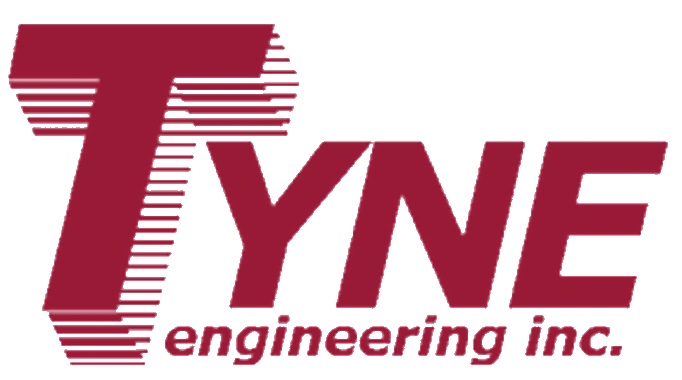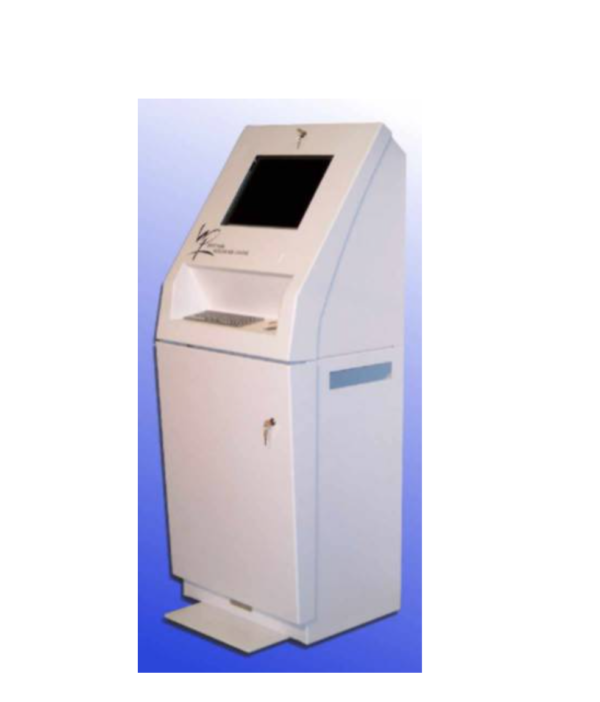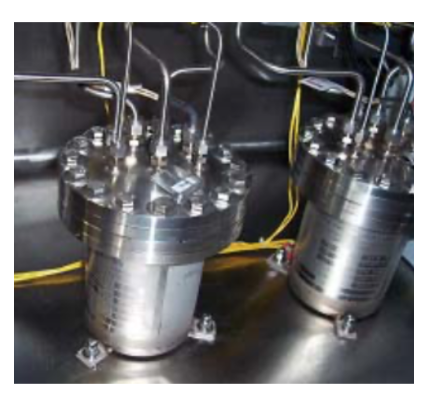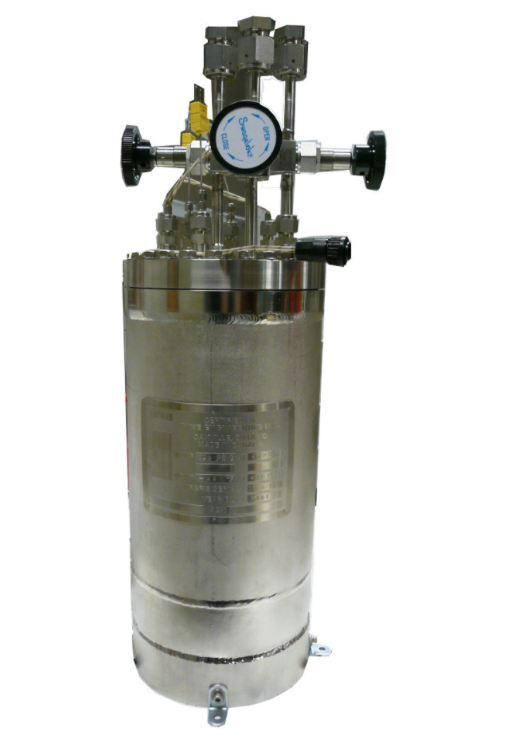
Secondary Enclosure Clean-up Systems (SEC)
Model: 7013-SEC-001
Tritium systems are usually put inside secondary enclosure cleanup systems or gloveboxes because tritium has the ability to permeate elastomers and metal walls, particularly when the walls are heated. It is likely that the glovebox atmosphere will eventually become contaminated with tritium, hence an atmosphere clean-up system is often required. This clean up system is sometimes referred to as a Secondary Enclosure Clean-up System or SEC System. The clean-up system can also regulate temperature, humidity, and remove other impurities.
- Automatic operation.
- Glove box temperature & pressure control.
- Tritium monitoring, entrapment and reuse.
- Moisture control.
- Custom built stand alone system.
- Can be moved to other glove boxes.
The Secondary Enclosure Clean-up system (SEC) comprises a stand alone system which can be attached to any glove box, so one unit can service several boxes of a tritiumfacility. The SEC system has two main duties, firstly to assess the conditions of the glove box atmosphere and secondly to safely clean up or replace it.
The system circulates continuously on bed by-pass mode, and assessment of the inert atmosphere is done by measuring the gas stream for tritium, and measuring humidity, temperature and pressure. The SEC system will assess whether to purge the box to atmosphere, replace it with clean inert gas, pass it though a bank of getter beds to first clean up the atmosphere, or leave it on bed by-pass mode.
The SEC system may contain a 5A molecular sieve bed to remove moisture, and a nickel bed to crack organics and absorb oxygen. One or more beds will be used for the removal of tritium, these will normally comprise a uranium bed and a ZrFe bed, but two ZrFe beds are better options for some circumstances.
The beds are located in a circuit with by-pass lines around them and suitable valving to permit any bed to be included or excluded.
Pneumatic valves are operated automatically through a computer control process. A high integrity diaphragm pump will circulate the atmosphere of the glove box, which will be monitored fortemperature and be cooled if necessary; will monitor for humidity, and if high humidity is indicatedtogether with low tritium, the gas will be discharged to stack and replaced with fresh, dry, inert gas; if tritium is also indicated, the gas will be passed through a mol sieve bed to dry it, removing HTO, and then through a getter bed to remove elemental tritium. Cooling, if required, is normally via chilled water in a tube-in-tube heat exchanger, or with a finned cooling system using an airblower. Variations and requirements will be discussed with each Client to best meet their needs.
Please contact us for details.


related Tritium storage solutions
Quality tritium storage and transportation is a critical aspect of the evolving and developing energy, medical, research and development industries. Tyne is highly valued worldwide for our ability to provided leading storage solutions.









